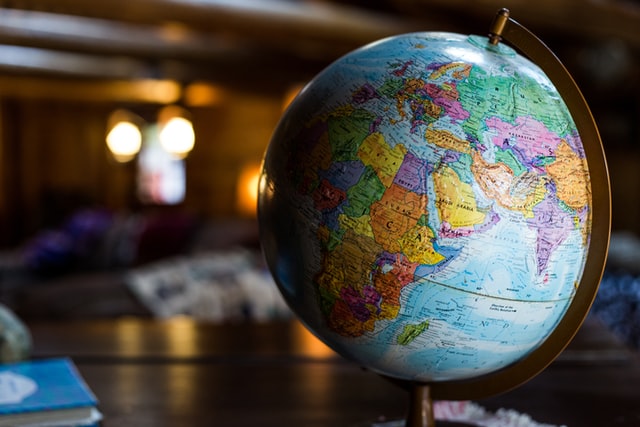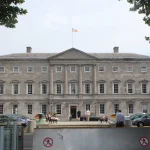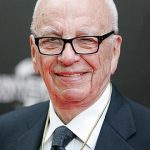The AEJ’s Tony Robinson, former FT correspondent in Moscow, Rome and east European editor, has this look at some lessons from Russian imperialism.
Russian imperialism – lessons from history
From Anthony Robinson 24 March 2022
Vladimir Putin’s crushing of fledgling post-Soviet democracy and civil society in his drive to re-build a Russian Empire confirms Zbigniew Brzezinski’s dictum that Russia can either be a democracy or an empire, but not both. The Russian president’s mistaken calculation that a successful blitzkrieg against an unresisting Ukraine would result in yet another pusillanimous western reaction is more likely to lead to a weakened, more divided Russia, than a strengthened empire.
In the late 1980’s Mikhail Gorbachev and his foreign minister Eduard Shevardnadze both came to a very different conclusion about the attractions of empire. With an obsolete economy and oil prices hovering around $12 a barrel they decided that the Soviet Union had to retreat from Imperial over-reach and ditch its ideologically based foreign policy.
Shevardnadze ordered a review of Soviet aid to allies like Cuba and Vietnam, to left wing liberation movements in Africa, Asia and Latin America and subsidies to Italian, French and other foreign communist parties. What weighed most heavily was the cost of maintaining over 40,000 Cuban troops and Soviet advisers dispatched to Angola and Mozambique in 1977 as 400 years of Portuguese rule crumbled after a mutiny by left wing army officers.
The ageing Brezhnev regime then added to Moscow’s imperial burden by invading Afghanistan. The sclerotic, militarised economy buckled. Already low living standards dropped, queues lengthened, and morale plummeted, especially in the Baltic States and Central European satellites, despite cheap oil which also reduced volumes available for hard currency export. Repressed discontent was revealed in bitter Soviet jokes – “there is no meat in Russia, so they go on strike in Poland.”
The Soviet Union was doomed well before Gorbachev assumed responsibility in 1985. “Glasnost” — openness or transparency — merely revealed the rot. In the end, the attempt to shed the burdens of imperial over-stretch was insufficient to prevent internal collapse. But Putin seems unaware that same imperial over-reach was a key factor in the implosion of the Soviet Union which he still views as a geopolitical disaster.
Reversing Soviet foreign policy came too late to save the Soviet Union. But it had hugely positive consequences for the world and gave all the successor states, including Russia, the chance to concentrate on the immensely difficult task of rebuilding their economies and societies and open up to foreign investment, technology and know-how from a friendly West.
Moscow’s willingness to remove Cuban troops from Angola and Mozambique was the game changer. It opened the way for Namibian independence, hastened the end of apartheid and convinced the Americans and western leaders that the Soviet Union had genuinely opted for co-operation.
On a special flight up to Brazzaville in 1988 as FT Johannesburg correspondent I sat next to a South African general who told me bluntly “nothing will change in South Africa until those Cubans are out of Angola and Mozambique.”
After the first session of talks between South Africa, the US, Cuba and the Soviet Union in the Congolese capital Anatoli Adamishin, then the Soviet deputy foreign minister, told me “our main goal is to persuade the Americans that in future we want to be part of the solution to global problems and no longer part of the problem.”
Reversing Moscow’s imperial role also led to unprecedented progress on nuclear arms control negotiations, and a degree of mutual trust with the outside world which extended well beyond the demise of the Soviet Union. The momentum lasted long enough to reach agreement between Russia, the US, Kazakhstan and Ukraine to remove strategic nuclear weapons from newly independent Ukraine and Kazakhstan and either destroy or transport them to Russia.
This was the top priority of James Baker, the US secretary of state to the first President Bush. The policy was adopted by the new Clinton administration and culminated in the Budapest Memorandum of 1994 in which all the signatories, including Russia, pledged to guarantee the sovereign independence of Kazakhstan – and Ukraine.
After the intense early efforts to build a co-operative relationship with post-Soviet Russia, however, both sides took their eyes off the ball. The increasingly chaotic Yeltsin administration involved itself in a disastrous war in Chechnya, which contributed to the rouble crisis of August 1998. Putin became president and started to re-build the “power vertical”.
The Gulf War was an early distraction from forging a new western relationship with Russia. Then came the destruction of New York’s twin towers, followed by wars of choice in Afghanistan, Iraq and elsewhere. Yugoslavia violently split apart and former Warsaw Pact countries flocked to join Nato.
Putin watched carefully as a distracted West thus squandered the Cold War “peace bonus” and shifted its attention to the challenge of a rising China. His warning about the West’s lack of respect at the 2007 Munich security conference was largely ignored. Two years after Putin attacked Georgia and occupied Abkhazia and South Ossetia in 2008, French President Sarkozy undermined the West’s mainly verbal protests by selling Russia two seaborne assault vessels and inviting Russian naval engineers to learn how to build the second one in French shipyards.
Last in a long series of misjudgements, Western impotence, even seeming indifference, to the death of at least 14,000 people in eastern Ukraine after Russia took its first bite of the country in 2014, as well as the dilatory western reaction to the assembly of 150,000 armed troops around Ukraine early this year must surely have contributed to Putin’s belief that he could invade, occupy and absorb Ukraine, just as he has moved to re-integrate Belarus and Kazakhstan without serious consequences.
Once the Ukraine war is eventually over both Russia and the West will have to work out a new modus vivendi and stick to it. Russia with all its complexities will never be easy to deal with. Bismarck at the 1878 Congress of Berlin vowed to keep Russia close. At the time Punch had a brilliant cartoon of Bismarck and Austro-Hungarian Chancellor Andrassy walking arm and arm with Gorchakov the Russian foreign minister firmly held between them.
It is of course inconceivable that such a close relationship could be forged while the war continues and while Putin remains in command. Putin and his fellow gangsters must go. The sooner the better. Longer term, with Russia, as with democracy, rapprochement demands eternal vigilance. Ukraine is paying for our lack of it.








